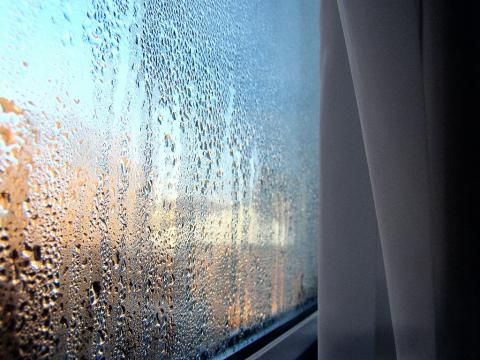
It's the time of the year where you wonder why you get so much condensation on your windows.
Condensation happens when warm moist air in your home hits a cold surface. It turns from a water vapour (water as a gas) and becomes water droplets on cold surfaces. Windows are often the first place you will notice it but it will also be on cold uninsulated walls, metal window frames and sometimes even door-handles.
Insulating your home will certainly help condensation on your walls but to stop it condensing on the cold glass, you need to manage air-flow/ventilation Good glazing helps but even WITH double glazing and really good, well fitted honeycomb blinds or curtains, you may still get condensation.
It's a tricky thing to avoid but here are a few things you can do to help.
- VENTILATE: With a well draught-proofed home you have to be really active in ventilating.
- OPEN windows and doors even when it is cold outside - this could be for just 5 minutes before you leave home in the morning and when the heating has been turned off.
- TURN ON extractor fans in bathrooms, laundries and kitchen when cooking and keep them running for at least 15 minutes.
- VENTILATE around the window when you are not using the heating. This might be having the window slightly ajar at night and closed again in the morning.
- CLEAN off the condensation in the morning with a window washing blade to wipe it off, soak up the sop with am old towel and hang the towel OUTSIDE to dry. This will also reduce the chance of rotting your wooden window frames and providing a welcome home for mould.
- DOUBLE/TRIPLE GLAZE (or for a more economical and effective solution - secondary glazing as demonstrated in this GIY video) to keep inside window pane at a warmer temperature so the moisture won't condense.
- CURTAINS and heavy drapes help insulate the room but may also, in the process keep the window surface colder and result in more condensation. That said, I think curtains are better. You can deal with the condensation.
- DRY clothes outside where possible to avoid high humidity in the house
- NO HEAVY BREATHING
- Log in to post comments